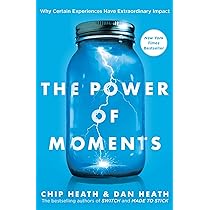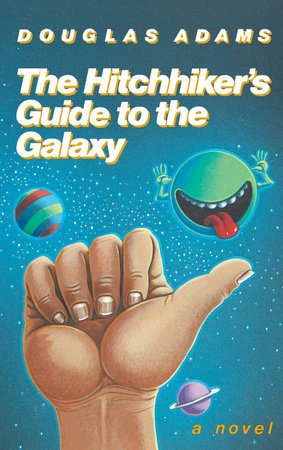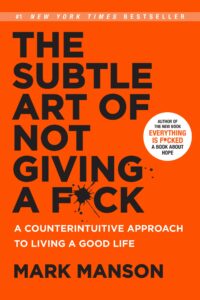The Power of Moments
 To kickoff 2024, we’re reading this book as a leadership team. Thus far, it’s been a pretty decent listen. Here’s some of the insights.
To kickoff 2024, we’re reading this book as a leadership team. Thus far, it’s been a pretty decent listen. Here’s some of the insights.- Peaks, pits, and endings matter when creating experiences that are memorable.
- Epic – Elevation pride insights connection
- Break the standard script to make moments meaningful – the Southwest jokes in the safety speech, tipping a mom for all the work she did for her son’s bday.
- Milestones – we, humans, make up milestones. They are reasons to celebrate, and we can make them meaningful. e.g., eg 30 years old, 747 club, or making the first day at a job memorable.
- Moments matter – make it meaningful
- Idea – give clients a gift for anniversary.
- Pleasing and delighting clients who like you is more profitable than fixing the problems noted by those who dislike you. Be more proactive to delight… rather than only continually react to complaints.
- Variety is the spice of life
- Novelty slows down time. Firsts slow down time.
When we get older, the world speeds up because those firsts and novelty are more rare. - We feel more comfortable when things are certain. We feel much more alive when they aren’t.
- One. Elevation are more memorable. Like birthdays.
Two. Certain elements have elevation already built in it. Like games, they have elements of elevation.
The opposite of this is school. It’s ongoing practice… and easily forgettable.
Three. Make it memorable. Raise the steaks. Make it more emotional. Break the script and do something different.
Four. Breaking the script, requires more attention.
Five. Building peaks is worth the struggle.
Six. Break the script. The script is great for organizational change. The old way versus the new way.
Seven. Make more memories to slow down time. - Scenario planning helps build expertise and reduces anxiety.
Go through how you’d respond in situations. It gives confidence if you’re an alcoholic and the server asks you if you want a beer and you mentioned you’d rather have a soda water. This is why DARE did not succeed. People understood what drugs could do but they weren’t given the confidence on how to respond if someone offers alcohol or drugs. - If you continue to live in a life vest, you’ll never know the experience of swimming. Get yourself out there and push yourself.
- Understand the benefits of failure. Every week a father would ask.. “What did you guys fail at this week?” It made it okay to fail as long as we moved ahead to a better place. #DadAdvice
- Find mentor to stretch yourself. The goal is not to succeed when you stretch, but to learn and take away experience.
- Laughing is a sign of acceptance in a group, not necessarily humor.
- Happy employees (and higher purpose) will always create better end products and happier clients.
- The best form of bonding is struggling together.
- Pursue purpose over passion. Don’t do things you’re passionate about… do things that have purpose and hopefully they align with passion.
- “There’s nine times more to gain by elevating positive customers than by eliminating negative ones.”
- “If you want to be part of a group that bonds like cement, take on a really demanding task that’s deeply meaningful. All of you will remember it for the rest of your lives.”
- “What matters” is general. “What matters to you” is personal. It gets people to take a second and think.
- Relationships don’t deepen naturally. Trying to get past the plateau. Try to move it a little bit deeper. Build the relationship and form a better bond.
- Give people autonomy on challenging project. Let the team struggle together. Struggle + team independence builds that bond.
- When sales and marketing aren’t working well together, you have to shake it up. Flip the script and change something to build that bond between the two teams. This can be a two-day retreat.. .something that switches the way of working.
- Ideas are not serendipitous. Taking action on the idea is the most important step. That builds your path to build your moment.
- The actions you take build the moments you live.
The Wager
 I don’t really know what got me into my fascination around old, crazy sail stories. I was thinking of the story of Magellan as Nixon began to discuss some of the history he had been learning. And then I landed on this book:
I don’t really know what got me into my fascination around old, crazy sail stories. I was thinking of the story of Magellan as Nixon began to discuss some of the history he had been learning. And then I landed on this book:
- The book covers the voyage of the British “The Wager” which is headed towards past Cape Horn to disrupt Spanish trade routes. (At the time Spain and the Britain were at war.) However, The Wager got wrecked off the coast of South America.
- Stranded on a desolate island, the crew battles hunger, disease, and despair under a captain whose leadership is questioned.
- They build a new vessel and embark on a perilous journey, only to confront mutiny and a fight for survival.
- They spend five months on the island with some support from the natives. They continuously fight hunger and the cold.
- Finally a mutiny happens and the crew leaves via a separate boat they built. 30 of them make it back to England. The original captain stayed back and made his own course. Only three people remained with him.
- They finally get back. Each side blamed the other but no serious consequence comes out.
- The book taught me how horrible scurvy can be and how easy it is to prevent
- The book was fairly interesting, but … the audiobook was a bit hard to follow.
Hitchhiker’s Guide to the Galaxy
 Meh. This book started off pretty interesting, but as we jumped into it… for an audiobook, it got a bit confusing. Mainly the book challenges the real meaning of life, and it brings up the ridiculous things we’ve invented (bureaucracy, envy, politics, etc.) to a universal level, which still makes no sense. It was somewhat entertaining, but I did watch the movie afterwards and was equally confused on what was going on. So, despite the amazing reviews, and my current enjoyment of space movies, this one didn’t fit the bill. I did like the depressed robot who then was supposed to build his super computer. He was kind of funny and had Snape’s voice. Otherwise, there may be better books/movies out there.
Meh. This book started off pretty interesting, but as we jumped into it… for an audiobook, it got a bit confusing. Mainly the book challenges the real meaning of life, and it brings up the ridiculous things we’ve invented (bureaucracy, envy, politics, etc.) to a universal level, which still makes no sense. It was somewhat entertaining, but I did watch the movie afterwards and was equally confused on what was going on. So, despite the amazing reviews, and my current enjoyment of space movies, this one didn’t fit the bill. I did like the depressed robot who then was supposed to build his super computer. He was kind of funny and had Snape’s voice. Otherwise, there may be better books/movies out there.
The Subtle Art of Not Giving a F*ck

This book kept on popping up in my feed about being a great book. Well, as life happens (election results, etc.), I decided to give it a whirl to help me well, not give as much of a f*ck. Overall, the book had a few really great points and some interesting stories. However, the delivery and the wrapping of the stories felt more like a frat guy chatting with his bros. Despite that, the points were solid.
- Respectfulness of death and the inevitable… gives more appreciation of life
- If you’re stuck on a math problem, don’t just think about how to solve it… that wastes time. Take action. Start to solve it the best way you can then the ideas will come.
- If someone is better than you with something… That means they fail more than you to sharpen their craft at that thing.
- The pursuit of pleasure is a false God. Ask the adultress who ruined their family. Ask the alcoholic. Ask someone who has diabetes who can’t control their diet.
- The years of struggle generally get interpreted as some of the most beautiful.
- It’s not the end point that you should enjoy… but the path to end point.
- Who you are is what you’re willing to struggle for.
- Every person/career deals with sh*t. It’s what type of sh*t you’re willing to deal with, which shows what you’re willing to take on. (There is no spot where you will continually not having to deal with pain point or adversity, no matter what you do)
- Reserve f*cks for what matters. This book’s message is about not caring about everything else. The older you get, the less f’s you give… the more success you have.
- The constant pursuit of happiness can lead to more suffering. Instead, accept your negative emotions and focus on what is truly important.
